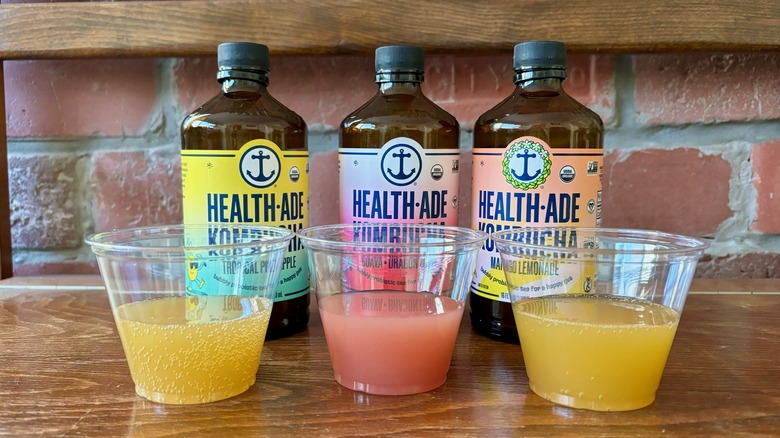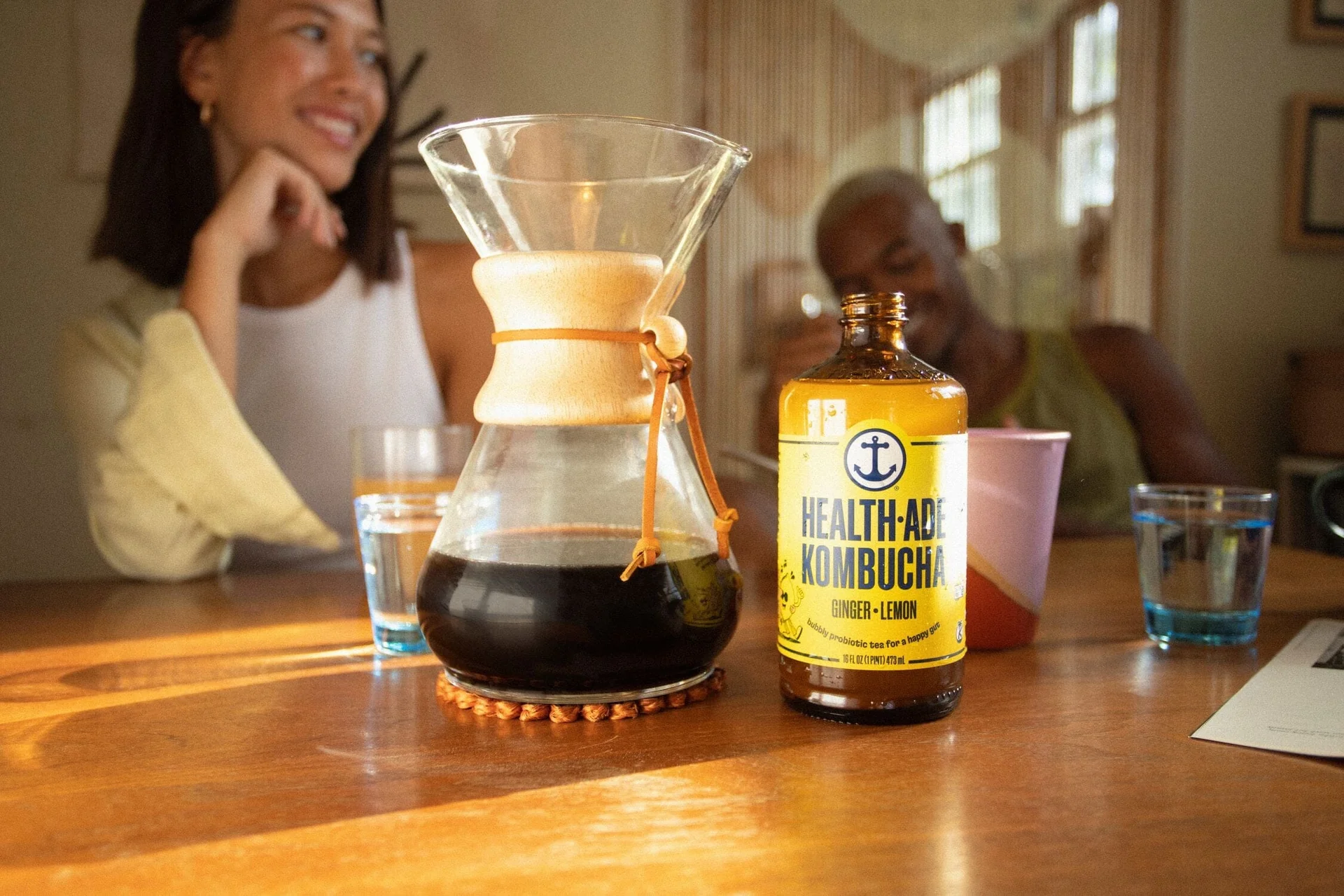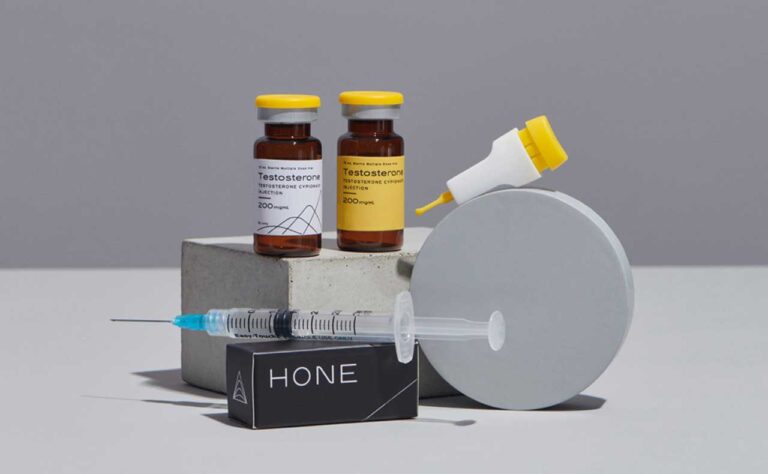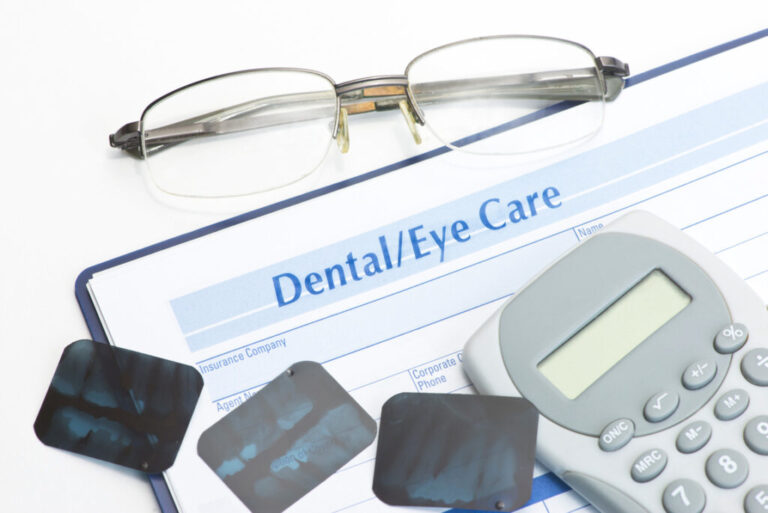Does Health-Ade Kombucha Have Caffeine?
Health-Ade Kombucha is one of the most popular kombucha brands in the United States, loved for its refreshing taste, fizzy texture, and health benefits. Marketed as a probiotic-rich drink that supports gut health, immune function, and overall well-being, it’s a favorite among health-conscious individuals. But if you’re sensitive to caffeine or simply want to know exactly what you’re consuming, you might be wondering — does Health-Ade Kombucha have caffeine?
Understanding Kombucha and Caffeine
Kombucha is made by fermenting sweetened tea with the help of a SCOBY — a symbiotic culture of bacteria and yeast. Since the base ingredient is tea (black, green, oolong, or a blend), there’s naturally caffeine present. Tea leaves contain varying amounts of caffeine, with black tea typically containing the most, followed by oolong and green tea.
When kombucha is brewed, the caffeine from the tea transfers into the drink. However, unlike a cup of hot tea or coffee, kombucha usually contains significantly less caffeine. This is because the fermentation process — which can last from 7 to 14 days — slightly reduces the caffeine content.
Caffeine Content in Health-Ade Kombucha
Yes, Health-Ade Kombucha does contain caffeine, but in much smaller amounts than coffee, soda, or energy drinks. On average, an 8-ounce serving contains about 5–15 milligrams of caffeine. This is minimal compared to:
- A standard 8-ounce cup of coffee: ~95 mg caffeine
- An 8-ounce black tea: ~40–50 mg caffeine
- An 8-ounce green tea: ~20–30 mg caffeine
This lower caffeine content means most people can enjoy Health-Ade Kombucha without experiencing jitteriness or caffeine crashes.
Why the Caffeine Content is Lower in Health-Ade

The relatively low caffeine level is due to several factors:
- Fermentation – The bacteria and yeast in the SCOBY use some of the caffeine during the brewing process.
- Tea blends – Health-Ade often uses green tea or a mix of teas, which naturally have less caffeine than black tea alone.
- Serving size – Many people drink kombucha in smaller servings than traditional tea or coffee, further reducing caffeine intake.
Health Benefits Beyond Caffeine
While caffeine content might be a concern for some, Health-Ade Kombucha offers benefits that go far beyond its energy-boosting potential:
- Probiotics – Support gut health and digestion.
- Organic acids – Aid detoxification and liver health.
- Antioxidants – Protect the body from oxidative stress.
Who Should Monitor Their Caffeine Intake?
Although the caffeine levels in Health-Ade Kombucha are low, certain groups should still be mindful, including:
- People with caffeine sensitivity
- Those with heart rhythm issues
- Pregnant or breastfeeding individuals
- People on certain medications
If you fall into one of these categories, it’s a good idea to talk to your healthcare provider before making kombucha a regular part of your diet.
FAQs
1. How much caffeine is in Health-Ade Kombucha?
Most flavors have around 5–15 mg of caffeine per 8-ounce serving, depending on the tea base.
2. Is Health-Ade Kombucha caffeine-free?
No. Since it’s made from tea, it naturally contains caffeine, though in much smaller amounts than coffee or standard tea.
3. Can I drink Health-Ade Kombucha if I’m sensitive to caffeine?
Yes, but you may want to limit your serving size or choose earlier times of the day to avoid sleep disturbances.
4. Does the flavor of Health-Ade affect caffeine levels?
Yes. Flavors brewed with black tea tend to have slightly more caffeine than those made with green tea.
5. Is Health-Ade Kombucha safe during pregnancy?
It contains low caffeine, but pregnant individuals should consult their healthcare provider before drinking kombucha due to caffeine and fermentation content.
Conclusion
Yes, Health-Ade Kombucha contains caffeine, but only in small amounts — typically between 5–15 milligrams per 8-ounce serving. This is much lower than coffee, tea, or energy drinks, making it suitable for most people. The drink not only provides a mild energy boost but also delivers probiotics, antioxidants, and other nutrients that support overall wellness. If you’re watching your caffeine intake, Health-Ade Kombucha can be a great option for enjoying the benefits of tea without the high caffeine punch.






